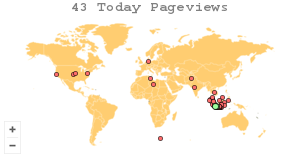KEPEMIMPINAN PEREMPUAN DALAM PANDANGAN ISLAM
DOI:
https://doi.org/10.47498/bashair.v3i1.883Keywords:
Leaders, Women, Islamic ReligionAbstract
Women taking on leading roles is a common occurrence in many parts of the world today. So, we need to know the rules of a group or organization led by a woman, as well as the rules of a very big country. This paper mostly talks about three things. The first is about the verses in the Qur'an and the sayings of the Prophet that, when looked at lafadz, show that women can't be in charge. This will be described in more detail. In the second discussion, a verse is given that scholars use to say that a woman can lead a group, organization, or state. This is followed by the scholars' interpretations of these verses, which can be used as evidence that a woman can be a leader. Then, in the last discussion, stories were told about women in charge, because this isn't a new thing. It's been happening since ancient times, which makes us sure and think that a woman can be in charge of an organization.
References
Adlini, M. N. (2022). Metode Penelitian Kualitatif Studi Pustaka. Jurnal pendidikan Edumaspul, 2022.
As-Suyuti, J. (2018). Lubabun Nuqul fi Sababun Nuzul. Bandung: Jabal.
At-Thabari. (1994). Jami’ Al-Bayan At-Thabari. Beirut: Muassish Ar-Risalah.
Baghowi. (1409 H). Ma’alimut Tanzil. Riyadh: Darut Tayyibah.
Farida. (2018). Kepemimpinan Wanita dalam Al-Quran. Lampung: UIN Raden Intan.
Fisa, T. (2010). Problematika Khatib dan Imam Perempuan Dalam Dakwah di Era Modern: Kasus Shalat Jum'at Aminah Wadud. At-Tanzir: Jurnal Ilmiah Prodi Komunikasi Penyiaran Islam, 2(1), 111-129.
Katsir, I. I. (2000). Tafsir Ibn Katsir. Beirut: Dar Ibn Hamz.
L., S. (2015). Kepemimpinan Wanita dalam Urusan Umum (Hadis Abi Bakrah). Al-Munzir: Jurnal kajian Ilmu-Ilmu Komunikasi dan Bimbingan Islam, 8(1), 114-125.
Shihab, M. Q. (2000). Tafsir Al Misbah (Vol. JIlid 5). Jakarta: Lentera hati.
Downloads
Published
Issue
Section
License
Authors who publish articles in Basha'ir: Jurnal Studi Al-Qur'an & Tafsir agree to the following conditions:
- The author retains copyright and grants the Basha'ir Journal the right from the first publication with the work simultaneously licensed under a Creative Commons Attribution-ShareAlike 4.0 International (CC BY-SA 4.0) license that allows others to make changes, adjust and build on the work with recognition of the author's work and initial publication in the Journal.
- Authors are allowed to copy and redistribute published versions of works in journals (for example, posting them to institutional repositories or publishing them in a book), with recognition of their initial publication in Basha'ir: Jurnal Studi Al-Qur'an & Tafsir.
- Authors are allowed and encouraged to post their work online (for example, in institutional repositories or on their websites) before and during the submission process, as it can lead to productive exchanges, and increase citations of published works






